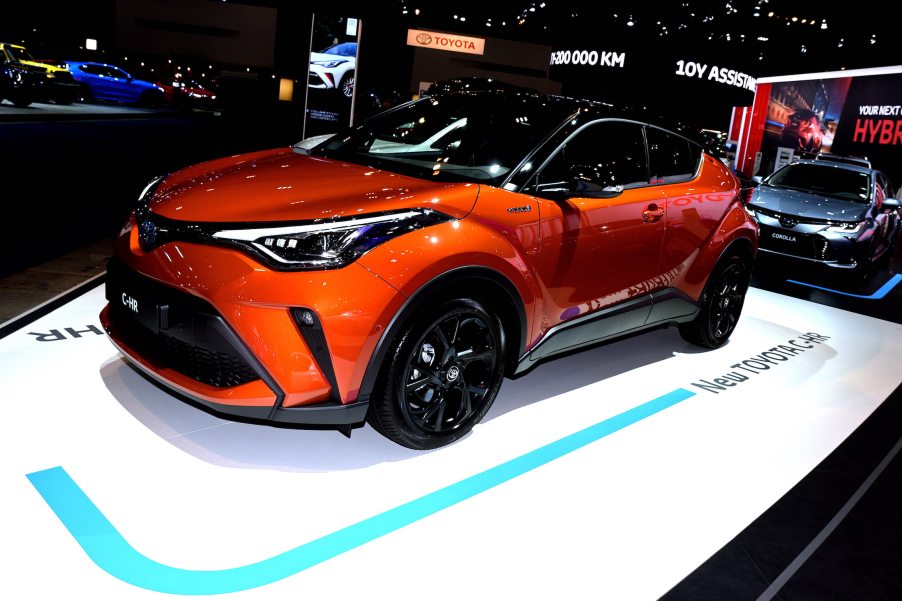
Why Would Anyone Buy a Toyota C-HR When You Can Buy a Corolla Hatchback?
So, you’re shopping for a new car. With a million resources online, it’s safe to assume you won’t pick the wrong one, right? Wrong. To avoid buyer’s remorse, websites like Consumer Reports often make lists about which vehicles to avoid in favor of other alternatives. When it comes to small cars, Consumer Reports says that the Toyota C-HR should be avoided at all costs.
Instead, drivers should opt for the Toyota Corolla Hatchback. Thinking about either of these Toyotas? We’ve got it covered for you.
Consumer Reports advises that you skip the Toyota C-HR
Immediately calling it “underwhelming,” Consumer Reports picked the Toyota C-HR as their Popular Small Car to Avoid. The small crossover is popular thanks to its reasonable price tag, but its shortcomings should take it out of the running for your next vehicle.
Consumer Reports states that the C-HR is “abnormally slow” with its 0-60 mph acceleration time of 11 seconds. Additionally, the C-HR is only offered with front-wheel drive, whereas most of its competitors are also available with all-wheel drive. While that might not be a dealbreaker for some, it is for many who live in snowy climates.
Other problem areas include low visibility due to the Toyota C-HR’s small rear windows, a cramped cabin with snug seats, and the inside of the cabin is noisy from the wind outside while you’re driving on the highway. Long story short, there are a lot of reasons to pass on the Toyota C-HR.
Instead, consider a Corolla Hatchback
Now that you know the Toyota C-HR has a lot of drawbacks, consider the Toyota Corolla Hatchback instead. If you’re brand-loyal to the Toyota name, then this is a no-brainer. The Corolla Hatchback, which is basically the same size as the C-HR, is priced just as reasonably as its competitors.
The Corolla Hatchback has better acceleration than the C-HR and is able to get from 0-60 mph in 8.7 seconds as compared to the C-HR’s 11 seconds. It also gets better fuel efficiency; the Corolla Hatchback was reported by Consumer Reports to get 36 mpg overall while the C-HR was reported as getting 29 mpg overall.
Additionally, the Corolla Hatchback has better visibility all around, has more comfortable seats with better legroom, and has a higher reliability rating.
How the Toyota C-HR compares to the Corolla Hatchback
While the Toyota Corolla Hatchback definitely has the advantage over the Toyota C-HR, there are some similarities to discuss. The Corolla Hatchback, like the C-HR, is also only available in front-wheel drive, making it less than ideal for drivers in the snow belt. And while the C-HR is noisy due to outside noises, especially at higher speeds, the Corolla Hatchback’s engine is also noisy — just in a different way.
Both vehicles also come standard with some of the same advanced safety features, which we’re all for. Both the C-HR and the Corolla Hatchback come standard with a forward collision warning and automatic emergency braking. In some of their competitors, these features are only available as optional add-ons.
All in all, we’d have to agree with Consumer Reports in that the Toyota Corolla Hatchback is the better option when compared to the Toyota C-HR. Especially since they’re around the same price (in the $20,000-$26,000 range), the Corolla Hatchback has more pros than cons. And given its better fuel economy, when the C-HR’s fuel economy is already pretty good, makes it an easy decision. If you’re considering a new small car or crossover SUV, then take a look at the Toyota Corolla Hatchback. You won’t be disappointed.


